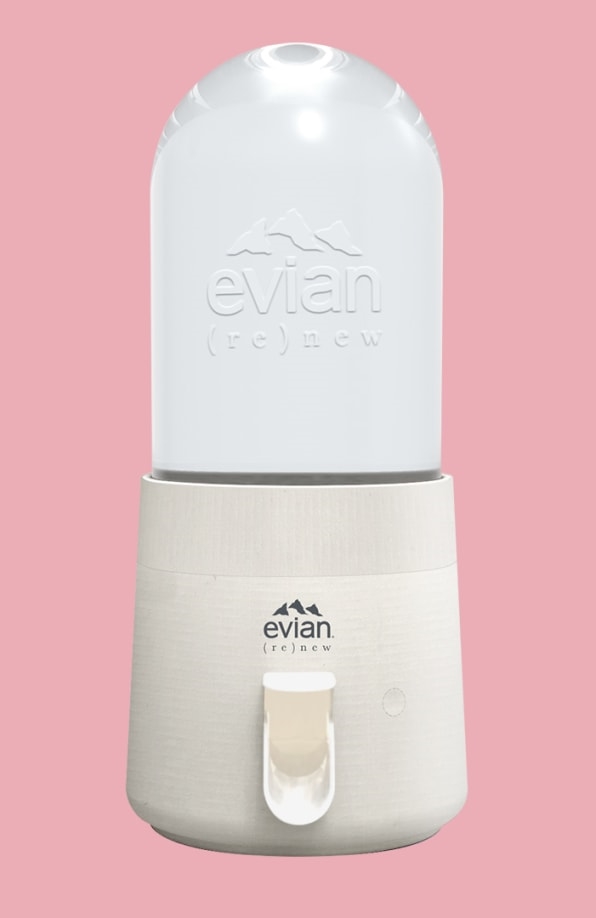A typical water dispenser might be topped with a heavy jug made of thick plastic. But this revolutionary new dispenser from Evian uses a thin water-filled “bubble” instead. The unique design means that the container uses drastically less plastic.
The new design, called Evian (re)new, “was born out of an ambition to reinvent the way we package and deliver our natural mineral water while minimizing our environmental impact,” says Patricia Oliva, the company’s global brand vice president. The bubble uses the water inside it to maintain its shape, and as the water is dispensed, the bubble progressively contracts. The design pushes “the limits of the physics of materials,” she says, and makes it possible for the plastic skin to be very thin; the 5-liter container uses 66% less plastic than a standard 1.5-liter Evian water bottle. It’s also the first Evian product made fully from recycled plastic, one step toward the company goal’s become a “circular” business and to make all its containers from recycled plastic by 2025.
The company is also experimenting with other alternative models for packaging. In a new pilot with Loop, a zero-waste platform that is working with major brands on refillable systems, Evian will sell water to Parisian consumers in reusable glass bottles that the company will take back and refill at its bottling site in the Alps. (It also recently sold a reusable glass bottle in a limited edition.) At restaurants in France, the company has offered returnable glass bottles for several years.
When consumers use up the water in the new dispenser, they push a button on the base to reorder more (there’s also an app); when the bubble is empty, they can either give the plastic back to the delivery person to be sent back and remade into a new container, or they can put it in a recycling bin.

But can plastic water bottles really be “sustainable” at all? For customers who don’t want to get water from the tap and just use a filter, other companies sell water dispensers that connect directly to water lines, avoiding bottles completely. But for those who want to drink specific mineral water, a “bubble” paired with a glass or reusable bottle, and recycled in a fully closed loop, seems like a better choice than a series of individual bottles, some of which inevitably won’t end up in recycling bins. The lightweight material also helps save emissions on transportation.
The company will test the system first with 200 customers beginning in May, with full pilots beginning this fall in Paris and London to further test how well the appliance and ordering system work. “The feedback and findings from this pilot phase will help shape where we expand the Evian (re)new offering, which we hope to make available on as wide a scale as possible in the near future,” says Oliva.
(26)